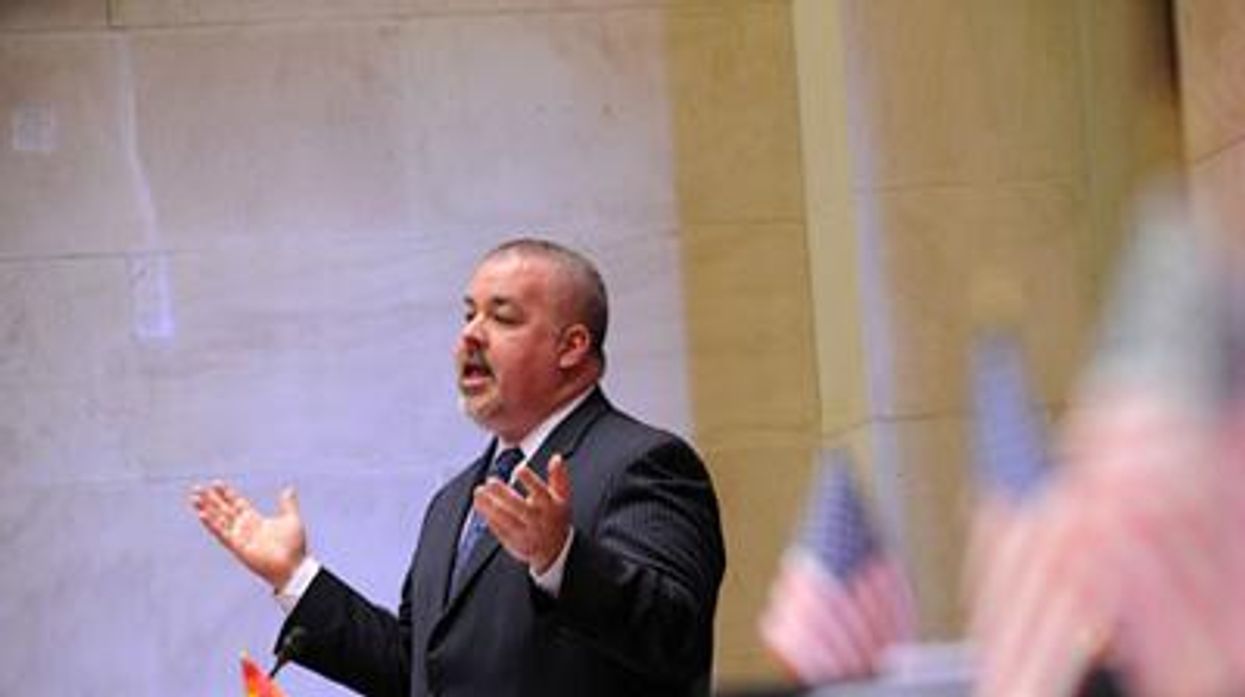Today's Supreme Court decision marks a decisive victory in the struggle for marriage equality. To live in a country where anyone can choose to marry his or her partner, whether of the same- or opposite-sex, is a dream long-held and worked toward. To wake up to this new reality, that we do live in that country now, is a triumph and delight.
But this week we are also reminded that enshrining rights in law is, in some ways, only the beginning. The recent horror in South Carolina is one of all too many recent wake-up calls that racial justice in this country may be law, but is still far from a lived reality for everyone. We must change hearts and minds as well as laws and structures of oppression to produce real change.
This kind of change requires building meaningful relationships across differences. We all need diverse allies to eliminate our concept of a "dangerous other" in favor of an ability to see one another as fellow human beings, not the groups or categories that we each belong to.
As the author of the Marriage Equality Act in New York, I spent many years campaigning for improved rights for the LGBT community. As much as possible, I tried to bring my partner (now husband) John with me to Albany. I wanted my colleagues in the legislature to be continually reminded that our relationship was just like many of theirs, and that both of us were simply human beings like they were, not a threat to traditional marriage or to any heterosexual individual.
John was happy to join me in Albany and to further the fight for marriage equality in New York, but the two of us would not have been successful, and today's decision would not have been possible, without a much more diverse coalition of supporters. We needed both gay and straight allies, insiders and outsiders, agitators and strategists, legislators and judges and yes, even fundraisers to make this happen. The strength of the movement for marriage equality was in its diversity, even as we were fighting for more rights for the increasingly diverse U.S. population.
Today's decision marks an outstanding step forward for LGBT Americans, and I am overwhelmed and overjoyed by the prospect of a different world facing LGBT children growing up today. So many role models are available to them, and so many more doors are open to them than for older generations. I can only imagine what accomplishments await these individuals when they are invited by society to pursue their full potential.
To ensure everyone has that opportunity, the coalition of supporters we harnessed to create the New York and national marriage equality movements must be mobilized to spread not only the message that marriage should be available to LGBT Americans, but that we must develop all of our citizens into allies for LGBT Americans, and for black Americans, and for all of our diverse citizens. This battle will not be won decisively, but incrementally. It cannot truly be considered close to completion until we are an inclusive community on all fronts, from race to gender presentation to sexual orientation.
We cannot be satisfied until each of us stands up against symbols of hate like the Confederate flag, until each of us stands up to whatever form of discrimination occurs before us, and until every child in this country is truly in a position to take advantage of all the opportunities available to only some of our population at this time.
Today I believe it is possible. Given this incredible, heartening decision, I am ready to keep fighting, as an ally and as a member of a marginalized community, as an elected official and as an American.
DANIEL O'DONNELL, the first openly gay man elected to the New York State Assembly, has been a progressive voice advocating fair and sensible legislation since he was elected to represent the 69th District in 2002 including as the author and sponsor of New York State's Marriage Equality Law, which was signed into law in 2011. His district includes Manhattan Valley, Morningside Heights, and the Upper West Side.















